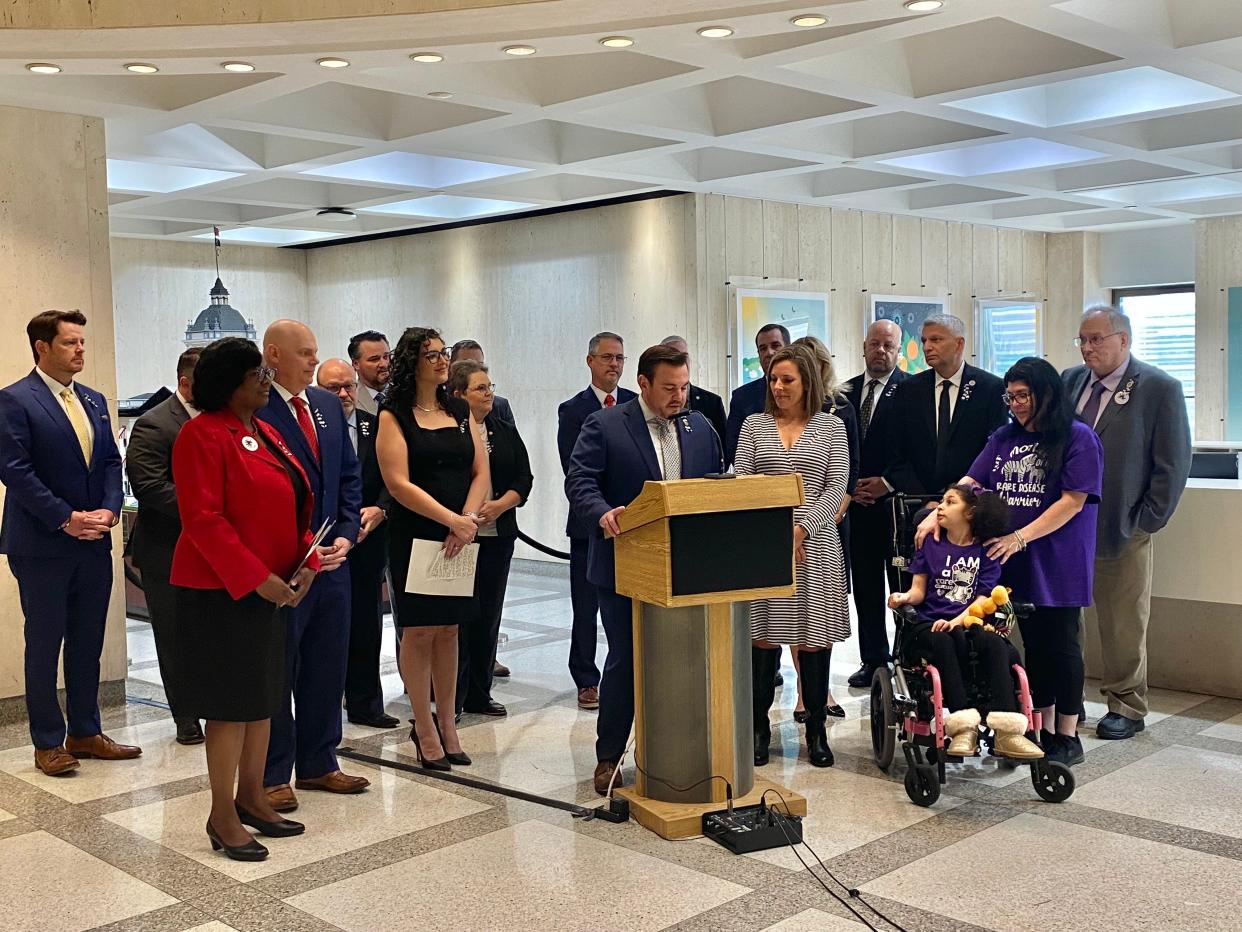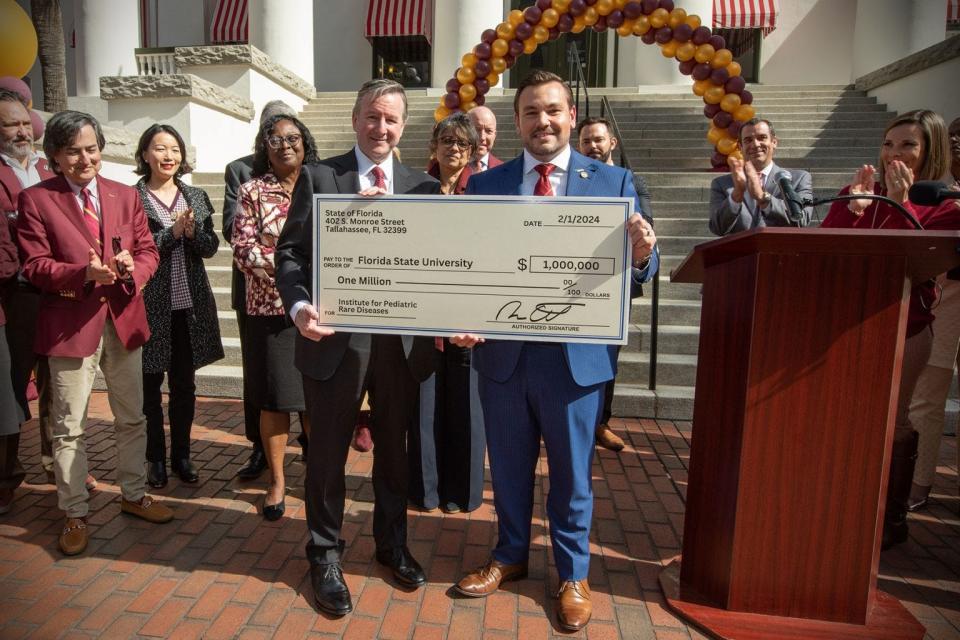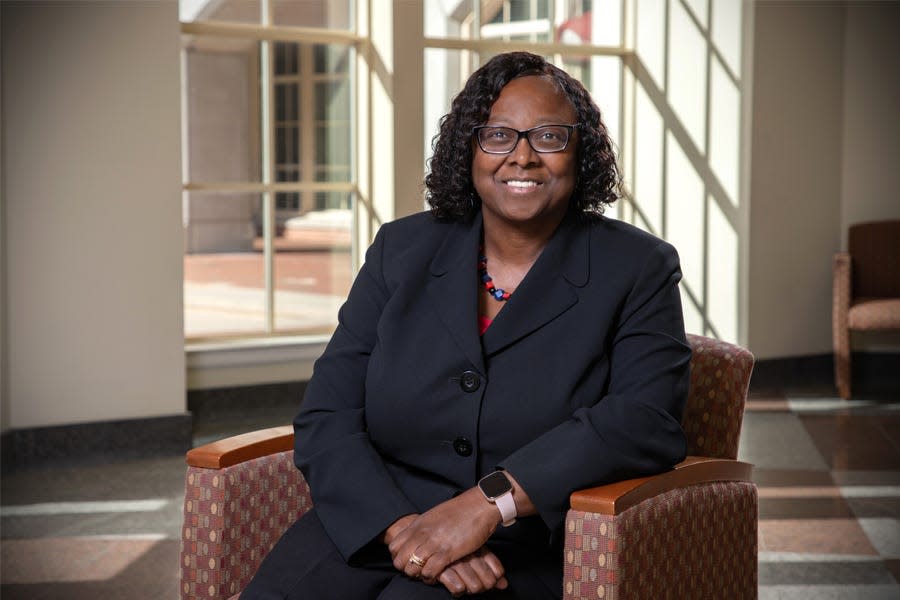Florida lawmaker recognizes Rare Disease Day, urges others to 'challenge the norm'

It is no coincidence that Rare Disease Day is observed on a day that comes only once every four years.
State Rep. Adam Anderson held a press conference in the Florida Capitol Thursday morning to recognize the awareness of rare diseases, saying that there is no better day to shine light on the topic.
“It’s the most fitting day for Rare Disease Day, because it is in fact the most rare day of the year,” Anderson said as he stood behind a podium.
One in 10 Americans have a rare disease, with two out of three of them being children, according to Florida State University’s Office of Research.
During the news conference, parents who have children with rare diseases spoke about their experiences and the challenges that are faced.
One of the parents was Eric Biernacki, a father and caregiver whose child suffers from a genetic disorder called KBG syndrome — a rare disease that comes along with symptoms including intellectual disability, seizures, heart defects and behavioral issues.
He says like most rare diseases, KBG syndrome is significantly under-recorded due to a lack of available medical testing and screening as well as misdiagnoses.
“Caring for a child with a rare disease such as KBG is extremely demanding, life changing and financially taxing,” Biernacki said. “There are endless therapies and doctor's visits, a lot of sleepless nights and constant worries about what the future holds for your child.”

The morning event comes a couple of weeks after Anderson held a previous press conference Feb. 1, during FSU Day at the Capitol, to announce the university’s newly funded Institute for Pediatric Rare Diseases — an initiative that will use technologies such as gene therapy to work toward determining the most effective treatment for children with rare diseases.
Anderson was accompanied Thursday by FSU’s College of Medicine Interim Dean Alma Littles along with Executive Director of the FSU Institute for Pediatric Rare Diseases Pradeep Bhide.
“We know that patients prefer to stay closer to home to receive care, and we look forward to developing a center that will allow them to receive much of the early testing, counseling and treatment of pediatric rare diseases as close to home as possible,” Littles said.
More: 'A giant leap': Lawmaker announces FSU's new Institute for Pediatric Rare Diseases

To ensure that individuals with rare diseases get the treatment they need, Anderson says past efforts have included the Rare Disease Advisory Council, which was formed by the Florida legislature in 2021 to advise the Florida Department of Health on how to improve health outcomes for Floridians who have a rare disease.
In addition, the Andrew John Anderson Rapid Whole Genome Sequencing Program was adapted last year under the direction of Florida House Speaker Paul Renner, where more than $3.2 million was allocated to benefit inpatient kids and youth in high-acuity pediatric care units.
“It's my long term goal to help position the state of Florida to be the nationwide leader in gene therapy and genetic research,” Anderson said, sharing that approximately 80% of rare diseases are genetic in origin.
He urged his colleagues and other listeners to “challenge the norms of traditional medicine and health care” and to join him in “cutting the red tape” that prevents Floridians with rare diseases from accessing the services they need to find a cure.
Contact Tarah Jean at tjean@tallahassee.com or follow her on X: @tarahjean_.
This article originally appeared on Tallahassee Democrat: Rep. Adam Anderson brings awareness to Rare Disease Day at Capitol

